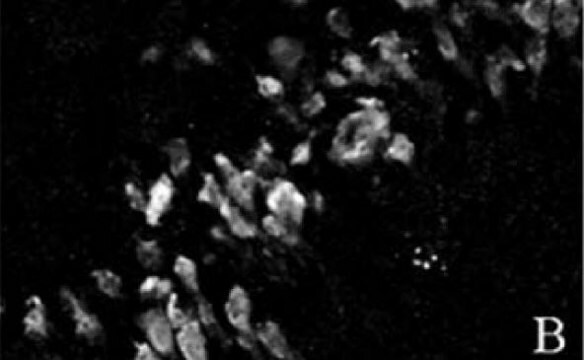MABC557
Anti-FANCA Antibody, clone 5G9
clone 5G9, from mouse
Synonym(s):
Fanconi anemia group A protein, Protein FACA
About This Item
Recommended Products
biological source
mouse
Quality Level
antibody form
purified immunoglobulin
antibody product type
primary antibodies
clone
5G9, monoclonal
species reactivity
human
technique(s)
immunoprecipitation (IP): suitable
western blot: suitable
isotype
IgG1κ
NCBI accession no.
UniProt accession no.
shipped in
wet ice
target post-translational modification
unmodified
Gene Information
human ... FANCA(2175)
General description
Immunogen
Application
Western Blotting Analysis: A representative lot from an independent laboratory detected FANCA in normal HSC93 and FA mutant lymphoblast whole cell extracts. The same lot also detected FANCA in HeLa whole cell extracts and in FANCA transfected PD430 whole cell extracts (Tremblay, C. S., et al. (2008). Blood. 112(5):2062-2070.).
Immunoprecipitation Analysis: A representative lot from an independent laboratory immunoprecipitated FANCA from yeast extracts expressing FANCA. The same lot also immunoprecipiated FANCA from 293T whole cell extracts expressing FANCA (Tremblay, C. S., et al. (2008). Blood. 112(5):2062-2070.)
Immunoprecipitation Analysis: A representative lot from an independent laboratory immunoprecipitated FANCA from FANCA wild type FA lymphoblast cell lysate (de Winter, J. P., et al. (2000). Hum Mol Genet. 9(18):2665-2674.).
Quality
Western Blotting Analysis: A 1:1,000 dilution of this antibody detected FANCA in 10 µg of Raji cell lysate.
Target description
Physical form
Not finding the right product?
Try our Product Selector Tool.
Storage Class Code
12 - Non Combustible Liquids
WGK
WGK 1
Flash Point(F)
Not applicable
Flash Point(C)
Not applicable
Certificates of Analysis (COA)
Search for Certificates of Analysis (COA) by entering the products Lot/Batch Number. Lot and Batch Numbers can be found on a product’s label following the words ‘Lot’ or ‘Batch’.
Already Own This Product?
Find documentation for the products that you have recently purchased in the Document Library.
Our team of scientists has experience in all areas of research including Life Science, Material Science, Chemical Synthesis, Chromatography, Analytical and many others.
Contact Technical Service